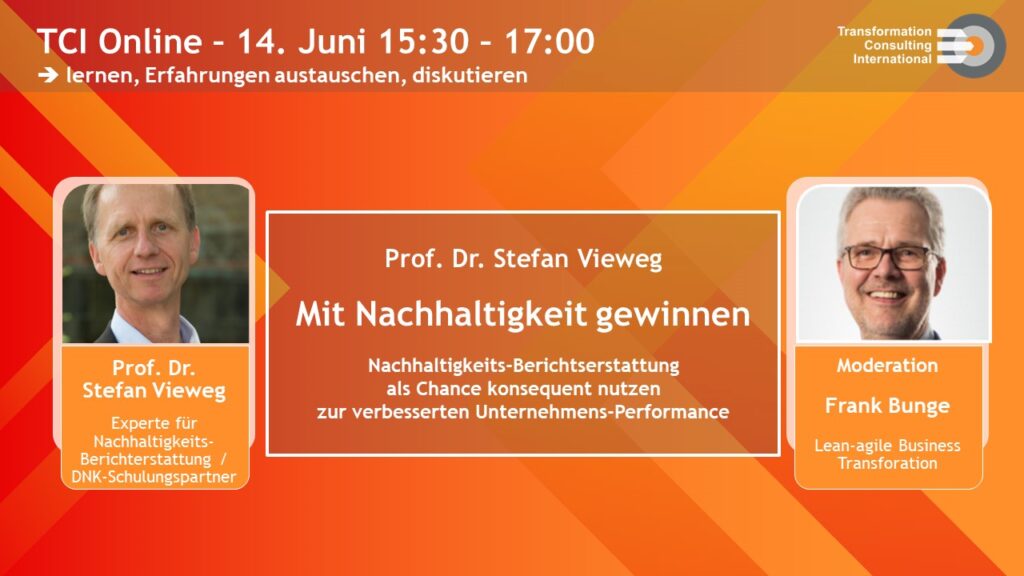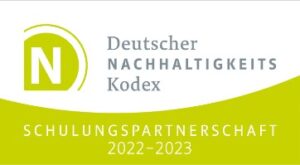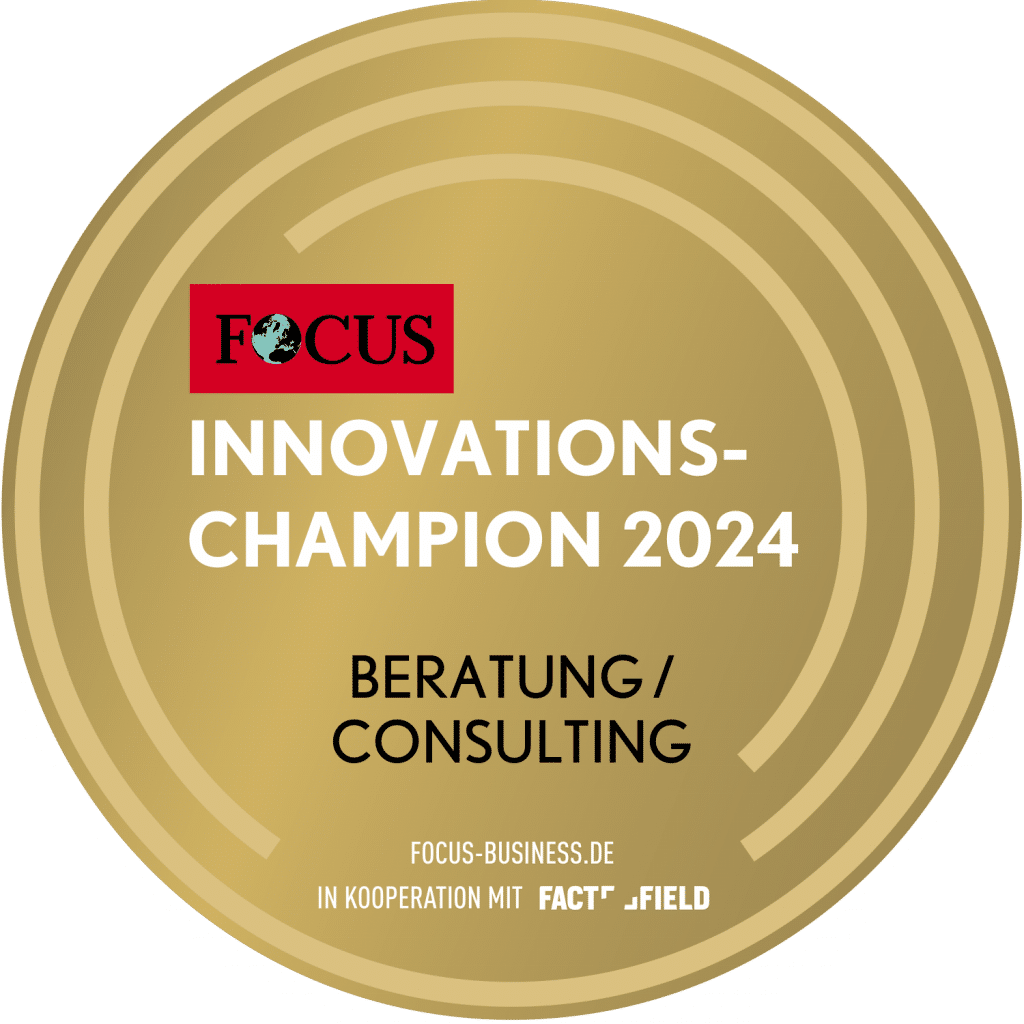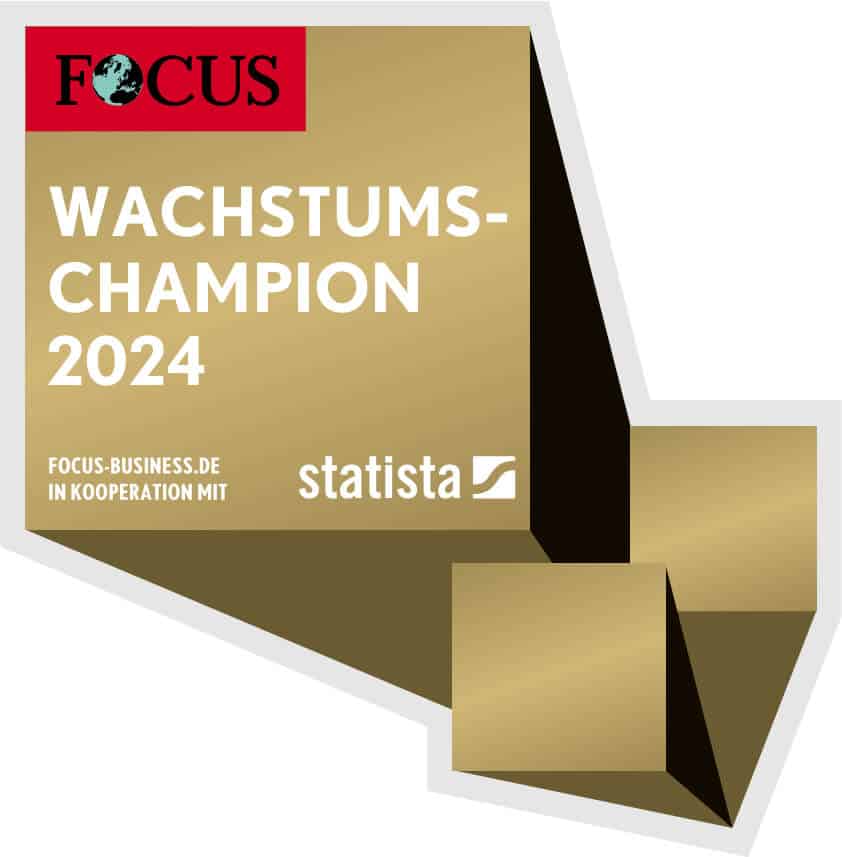Sustainability is the topic of the moment. But how can companies actually become more sustainable and report this transparently to their stakeholders? The German Sustainability Code (DNK) is a pragmatic approach with defined indicators. It is easy to implement and initiates positive effects within the company. Stefan Vieweg is a DNK training partner and shows in part 3 of its series of articles on sustainability in companies how sustainability reporting can initiate and drive change.
Note from the TCI editorial team: Register now for the TCI online event on the DNK approach and sustainability reporting on 14.06.2022 to 3.30 p.m..
Read also about sustainability by Stefan Vieweg:
- Implementing sustainability in companies - why now?
- Greenwashing & Co.: Companies should avoid these mistakes in sustainability reporting
The German Sustainability Code (DNK): a pragmatic and holistic framework
In Germany, the German Sustainability Code (DNK) has provided a pragmatic yet holistic framework since 2017. Initiated by the German Council for Sustainable Development - the German government's advisory body - the DNK covers UN standards as well as the increasingly stringent legal requirements (e.g. CSR Directive Implementation ActEU taxonomy and the Supply Chain Due Diligence Act).
All significant sustainability issues are comprehensively covered in 20 criteria:
- Strategy (4 criteria)
- Process management (6 criteria)
- Environmental aspects (3 criteria)
- Impact on society (7 criteria)
On the one hand, there are so-called performance indicators for the individual criteria, where targets and achievements can be backed up with concrete facts and figures.
DNK report: scope and requirements
The scope of the Sustainability Code report can be selected according to different sets of performance indicators (Global Reporting Initiative GRI, or the European Federation of the Financial Analyst Societies EFFAS), as well as covering different legal requirements from the CSR Directive Implementation Act to EU taxonomy or the new Supply Chain Due Diligence Act.
Initiating change through sustainability reporting
The "comply or explain" approach to sustainability (reporting) is as pragmatic as it is tried and tested. As a newcomer to the topic, you may get further with some topics via an "explain" because, for example, the data is simply not available and has never been recorded. However, this is precisely where the real strength of sustainability reporting comes into play: anyone who takes a serious look at the topic and recognizes their own gaps will create the necessary awareness within the company of the necessity and usefulness of closing these gaps over time. The main effects for first-time reporters include
- Increased transparency of sustainability management and performance for employees,
- Improved internal understanding of sustainability management and performance,
- Promoting sustainable management within the company,
- improved internal availability of sustainability-relevant information, and
- Increased transparency of sustainability management and performance for managers.
This allows the company to gradually build up the relevant expertise and move from a simple "explain" to "comply". The latter in turn results in better performance, which can usually also be measured positively in business terms.
In my column "Sustainable investment instead of green car wash" in Wirtschaftswoche, I used an example from the financial sector to show how implementation works and what it achieves.
For implementation, a project team, possibly an agile team, should be established to process the information for the individual criteria across functions.
Conclusion and outlook
Despite the superimposed disruption caused by the geopolitical crises of these days, we must not lose sight of the fundamentally important issue of sustainability.
By addressing the topic of sustainability in a targeted manner - for example as part of sustainability reporting in accordance with the Sustainability Code - the key issues are quickly brought to the table. The transparency created by sustainability reporting acts as a catalyst in the transformation to a truly sustainable company. Reporting companies benefit from continuous improvement in the sense of "from explain to comply". Due to the stricter legislation on sustainability, which is already becoming apparent from the 2023 reporting year, for example through the Corporate Social Responsibility (CSR) Directive Implementation Act, the new Supply Chain Duty of Care Act or the EU Taxonomy, it is important to address this issue at an early stage.
Register now for the TCI online event "Winning with sustainability - reporting with the German Sustainability Code"
You will receive even more background information and valuable practical tips at the TCI online event "Winning with sustainability - reporting with the German Sustainability Code", which will be held on June 14, 2022 at 3:30 pm takes place.
Register now: https://us06web.zoom.us/webinar/register/WN_G5srfOwzScWPIKHOsX2kLA

DNK training: How can sustainability be implemented in the company?
Stefan Vieweg is a DNK training partner and offers DNK training courses for companies.

- You will receive all information about requirements and Regulations
- You are informed about the Certification process informed
- You will receive important tips for creating your DNK report
- You receive concrete assistance for the Implementing sustainability in your company.
If you have any questions, please contact Stefan Vieweg at DNK@vieweg-beratung.de available.
Register directly for a DNK training course - the next dates are
Here you will find Further dates.
Source cover image: © Melinda Nagy | Adobe Stock


